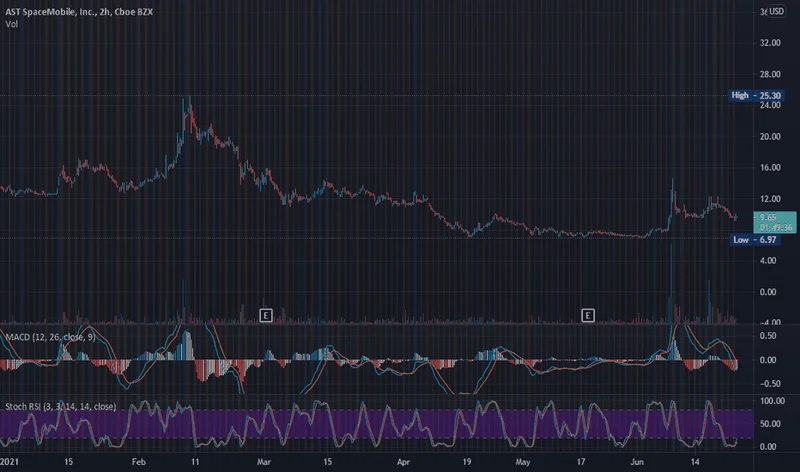So Verizon is hooking up with some company called AST SpaceMobile to beam internet down from the heavens. The stock, ASTS, is on a tear—up 254% this year. Wall Street is buzzing, the press releases are flowing, and everyone is pretending this is the second coming of telecommunications.
Give me a break.
We’ve seen this movie a dozen times before. A company with a grand, world-changing vision, a few successful "tests," and a partnership with a legacy giant that needs a good headline. The stock goes vertical, the early investors get rich, and everyone else is left holding the bag when reality sets in. They're promising to end dead zones forever, connecting you from "hiking trails to city centers." It sounds beautiful, poetic even. It's also a masterclass in selling a dream that's years away from being a stable, profitable reality. If it ever becomes one at all.
This isn't innovation; it's a financial instrument wrapped in the shiny foil of space exploration.
The Hype is Loud, But the Silence is Louder
Let's look at the "proof" they're touting. They made a "crystal-clear" voice call from a smartphone in Texas to one in New Jersey, bouncing the signal off a satellite. Great. That’s a fantastic tech demo. I’m genuinely impressed. But a single successful call is not a network. It’s like hitting a single home run in batting practice and declaring you've won the World Series. It’s a carefully choreographed piece of theater designed for one audience: investors.
How many of these satellites are actually in orbit and fully operational? What’s the real-world bandwidth going to look like when thousands, or even hundreds, of people in a remote area try to connect at once? The press release is conveniently silent on these messy little details.
Then there’s the PR-speak from Verizon’s guy, Srini Kalapala, who says they are "creating a new paradigm of connectivity." This is corporate word salad at its finest. A "new paradigm" is what you say when you don't have a product yet. It’s a placeholder for actual results. They’re not selling a service; they’re selling a forward-looking statement, padded with enough legal disclaimers to choke a lawyer. And the market, desperate for the next big thing, is eating it up. It’s a speculative rocket fueled by PR fumes and venture capital dreams, not actual, verifiable performance.

And while the hype machine churns, what are the people on the inside doing? The ones who actually know the state of the technology and the business? Well, that’s where the story gets interesting.
Follow the Money, Not the Press Release
If you want the real story, ignore the headlines and look at the SEC filings. Over the last six months, AST SpaceMobile insiders have made exactly zero open-market purchases of their own company's stock. Zero. Instead, they've sold, and sold, and sold.
The CTO, the President, the CFO, the COO—they’ve all been cashing out millions of dollars in shares. This is a bad look. No, 'bad' doesn't cover it—this is a five-alarm fire of a red flag. These are the architects of this grand vision, the ones who should be betting their fortunes on its success. Instead, they’re taking their winnings off the table while the stock is soaring on the back of this Verizon news. What does that tell you?
It tells me they know something the rest of us don’t. Or maybe they just know what every smart gambler knows: when the hype is at its peak, that’s the time to cash out. Why would you sell if you truly believed the stock was heading to the moon? Why wouldn't you be buying every share you could get your hands on? The disconnect is staggering, and honestly...
Then you have the analysts. For every firm slapping a "Buy" rating on this thing, you've got Scotiabank coming in with a wet blanket, rating it "Sector Underperform." A valuation bubble, cash burn, competition from giants like SpaceX—these aren't trivial concerns. Starlink is already a dominant force, and while their service requires special hardware, they have a massive head start. Is there really room for another player, especially one that's still in the glorified demo phase? Then again, maybe I'm just a cynic. Maybe this time it's different. But history has a funny way of repeating itself, offcourse.
It's a Rocket Ship, Alright—For Insiders to Bail Out On
Let's be real. This whole spectacle feels less like a technological revolution and more like a perfectly timed liquidity event for the people at the top. Announce a huge partnership with a household name, watch the stock price triple, and then quietly sell your shares to the retail investors who just read the glowing headlines. It’s a classic playbook.
I’m not saying the technology is fake. I’m saying the valuation is a fantasy. You’re not investing in a business; you’re betting on a story. A very, very expensive story. And by the time we find out if it has a happy ending in 2026, the authors of that story will be long gone, counting their money on a beach somewhere—a beach with perfect cell service, no doubt.
